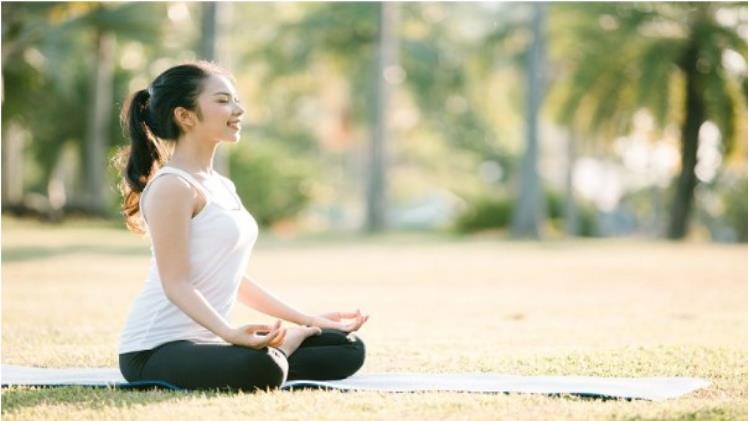
Stress Relief Techniques is a collection of practical techniques to help Vietnamese people, from students, students to office workers and the elderly. From practicing relaxation exercises, effective time management, to building a healthy lifestyle, these tricks are easy to apply and bring clear results. This article will share tricks to reduce stress, help you live a more peaceful and happy life MM88.
Contents
- 1 Overview of stress reduction techniques
- 2 What are stress reduction techniques?
- 3 Benefits of using stress reduction techniques
- 4 Relaxation Technique Practice Tips
- 5 Practice deep breathing for 5 minutes every day
- 6 Practice meditation regularly
- 7 Gentle exercise
- 8 Time Management Tricks to Reduce Stress
- 9 Make a priority list
- 10 Maintain healthy sleep and diet
- 11 Conclusion
Overview of stress reduction techniques
Stress reduction techniques are simple, scientifically-based methods of reducing mental stress, improving mood, and enhancing overall health. These techniques are suitable for everyone, from busy people to those who want to maintain a positive mental state Đá gà MM8.
What are stress reduction techniques?
Stress reduction techniques are techniques or routines designed to help you control and reduce psychological stress, such as deep breathing exercises, planning your work, or maintaining positive relationships. These techniques focus on calming the mind, increasing your ability to cope with stress, and preventing health problems such as anxiety or insomnia.
In Vietnam, where the pressure of studying and working often causes mental fatigue, these techniques are especially useful for maintaining balance. They do not require complicated tools, just perseverance and regular practice.
Benefits of using stress reduction techniques
Practicing stress reduction techniques has many benefits, from improving mental health, increasing productivity, and improving quality of life. These habits help you cope with stress and live a more positive life. Some of the key benefits include:
- Improve mood: Relaxation techniques help reduce anxiety and promote a sense of peace.
- Increase productivity: Stress control helps you focus more on work and study.
- Improve health: Reducing stress helps reduce the risk of heart disease, high blood pressure, and insomnia.
- Increased confidence: A relaxed mind helps you feel more confident in communication and decision making.
- Improve relationships: Positive moods help build healthier, happier relationships.
Relaxation Technique Practice Tips
Relaxation techniques are an effective way to instantly reduce stress and calm your mind and body. Here are three tips for effective relaxation.
Practice deep breathing for 5 minutes every day
Practicing deep breathing for 5 minutes every day is a stress-relieving technique that helps calm the nervous system and reduce the hormone cortisol, which causes anxiety. Sit in a comfortable position, inhale slowly through your nose for 4 seconds, hold your breath for 4 seconds, and exhale through your mouth for 6 seconds, repeat 10-15 times.
For example, office workers in Hanoi can do this exercise during their lunch break to reduce work stress. This technique is simple, does not take much time, and is suitable for all ages in Vietnam, especially when the pressure of studying or working increases.
Practice meditation regularly
Regular meditation is a stress-reducing technique that helps you focus on the present moment and reduce negative thoughts. Take 10 minutes each day to sit in a quiet place and focus on your breathing or a positive statement like “I am peaceful and strong.”
For example, students in Ho Chi Minh City can meditate before going to bed to reduce stress from homework or exams. This technique helps improve concentration, reduce anxiety, and is especially effective for those living in noisy, distracting urban environments.
Gentle exercise
Gentle exercise is a stress-reducing technique that stimulates the body to produce endorphins, the feel-good hormones. Activities such as a 20-minute walk around the park, basic yoga, or stretching at home are all effective.
For example, people working in Da Nang can take a walk along the beach in the afternoon to relax after work. This trick not only reduces stress but also improves physical health, especially suitable for people with busy lifestyles in Vietnam.
Time Management Tricks to Reduce Stress
Effective time management reduces stress by organizing your work and life scientifically. Here are some tips for time management.
Make a priority list
Making a priority to-do list is a stress-reducing technique that helps you stay organized and avoid feeling overwhelmed. Each morning, list your 3-5 most important tasks, such as completing homework, responding to work emails, or preparing documents, and prioritize them.

Use a notebook or note-taking app to track your progress. This trick helps you focus on important tasks, reduces stress from overwhelming work, and is especially useful for students or office workers in Vietnam.
Maintain healthy sleep and diet
Maintaining a healthy sleep and diet is a stress-reducing technique that helps the body and mind recover and increase the ability to cope with pressure. Get 7-8 hours of sleep every night, go to bed before 11pm, and keep your bedroom cool and quiet. Add foods rich in vitamins such as green vegetables, fruits (bananas, oranges), and limit fast food and coffee in the evening.
For example, people working in Ho Chi Minh City can prepare breakfast with oatmeal and fruit to maintain energy and positive mood. This trick helps you reduce fatigue, improve mood, and is especially suitable for busy lifestyles in Vietnam.
Conclusion
Stress reduction techniques are powerful tools to help you manage stress, improve your mood, and build a healthier lifestyle. From deep breathing, meditation, exercise, and prioritization to getting enough sleep and eating healthy, these techniques can help you live a more peaceful and happy life.